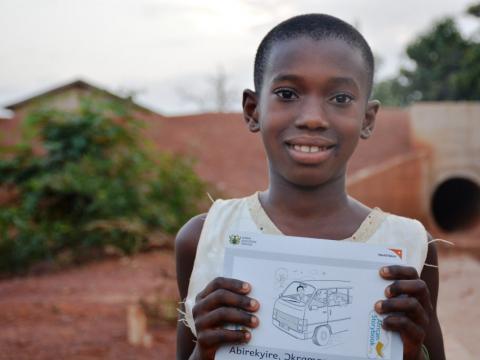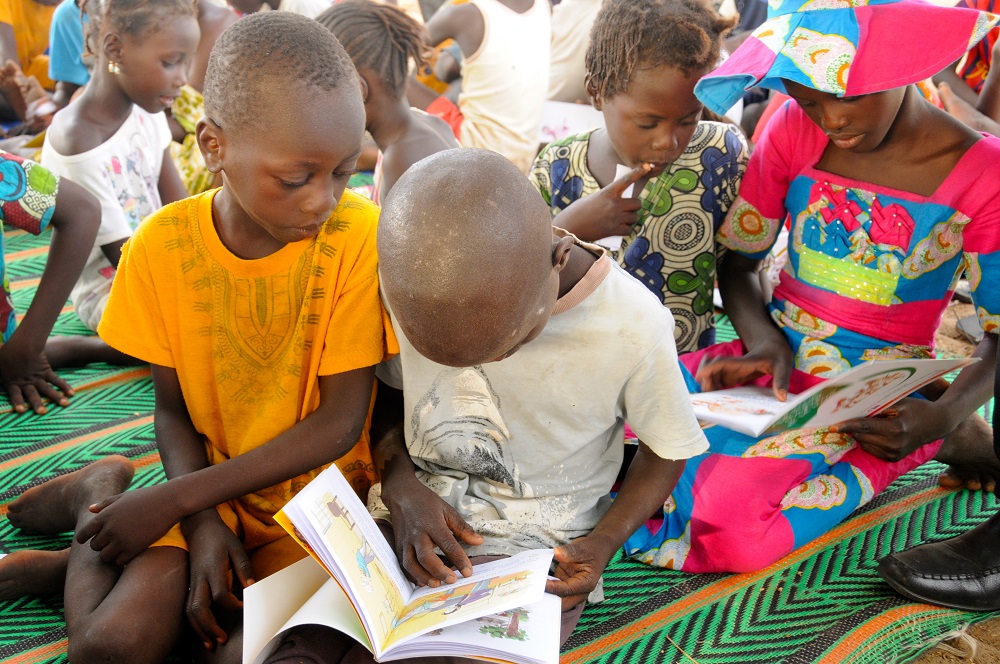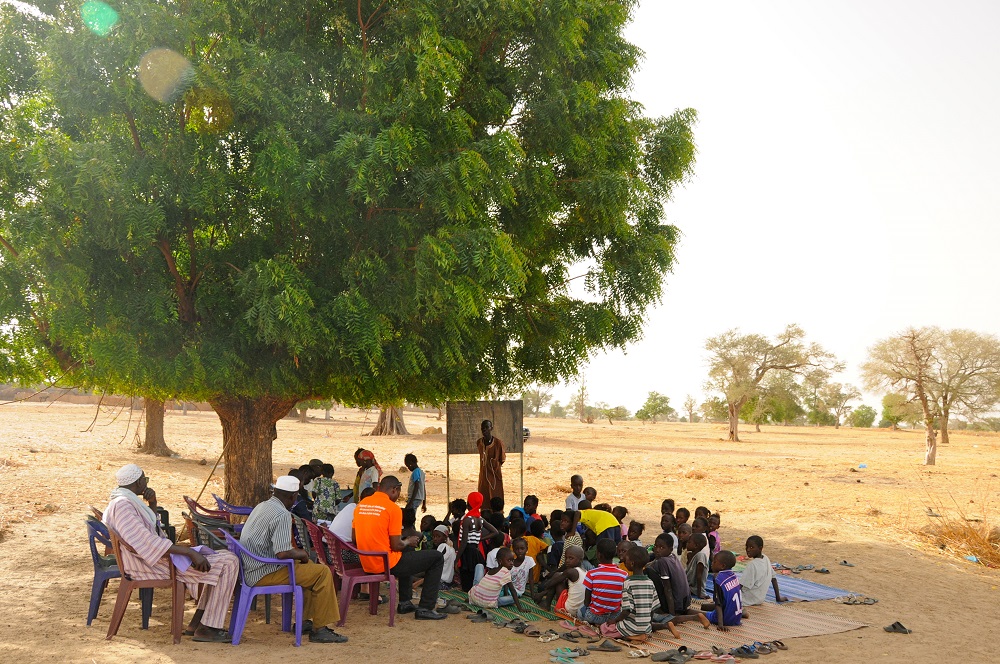International Literacy Day turns 50!

This year marks the 50th anniversary of International Literacy Day and at World Vision we are taking a moment to reflect on what has been achieved in education for children across the globe.
Like a wedding anniversary, where a couple can look back on the years that have passed and see how they, as partners, have changed and grown, so, we, as practitioners can pause and reflect on what has changed in the past 50 years in the education landscape. We can take a snapshot in time and peer into that moment to see how far children, classrooms and communities have come. Are they learning, despite their circumstances? Are the programmes we operate helping them understand and engage in education? Are we changing the lives of the next generation?
As Nelson Mandela once said, “Education is the most powerful weapon which you can use to change the world.” We, at World Vision, agree with Mr. Mandela and believe that empowering children to read, in their youngest years, opens their eyes, ears, minds and hearts to the world around them, and increases their likelihood of success in school and the workplace.
Children read together at a reading club in Senegal. (Photo credit: Lisa Sorensen / World Vision)
As part of this reflection on International Literacy Day, World Vision is analysing the success of our largest literacy programme, the World Vision and Save the Children Partnership for Literacy. World Vision partnered with Save the Children in 2011 to operate the Literacy Boost[1] programme in 17 countries across the world; working directly with teachers, governments, parents and community volunteers in some of the poorest and most underserved areas to help improve children’s literacy.
Most recently, in Ghana and Senegal, communities have reported incredible results in improving children’s literacy in our programme areas, giving us a continued foundation of strong learnings as we grow. For example, in our Literacy Boost programming in Ghana, World Vision saw a 34 per cent increase in students reporting the presence of a textbook at home – 50 per cent greater than in homes of children who aren’t yet participating.
In Ghana, 60 per cent of Literacy Boost students [became] readers with comprehension compared to only 19 per cent of those not in the programme.
In terms of reading skills, we can report statistically significant gains in almost all reading sub-tests for children in Literacy Boost. On average, students out-performed their peers who are not in this literacy programme. Literacy Boost students were able to correctly identify 78 per cent of their letters while comparison students could identify 55 per cent. Literacy Boost students were also able to correctly identify 61 per cent of their Twi (first language or mother tongue) most used words while the comparison group could, on average, only identify 25 per cent. Lastly, 60 per cent of the Literacy Boost students were readers with comprehension by completion, compared to only 19 per cent of those not in the programme. These results show a direct correlation between the programme and an increase in children’s literacy skills and their ability to successfully participate in their education.
At the beginning of the programme, less than 1 per cent of students could read a grade 3 passage. After one year of programming, almost 58 per cent were able to read the passage.
In Senegal, results are similarly encouraging. A recent endline study showed that students benefitting from the Literacy Boost programme could correctly identify 64 per cent of the decodable words while their peers not in Literacy Boost could only identify 45 per cent of the decodable words. At the beginning of the programme, less than 1 per cent of students could read a grade 3 passage, showing a huge need for the intervention within these areas. After one year of programming, almost 58 per cent were able to read the passage, while only about 40 per cent of the comparison group could read the passage, illustrating the impact this programme has on the lives of the children we are serving.
Teachers, enumerators and children gather together to begin a reading assessment in Senegal. (Photo credit: Lisa Sorensen / World Vision)
These results show us that literacy programming is working, that partnering with parents, teachers, community members and children can transform the trajectory of their education and can improve their likelihood for success. Building upon these results, World Vision is now looking at expanding its literacy programming to 27 countries in 2017.
Education and literacy should never be after-thoughts in a long list of needs, but should be the foundation on which we build to ensure all children live life in all its fullness.
As NGO’s, academics, government bodies and partners, we must continue to realise the vital importance literacy plays in a child’s life, and the dramatic change it can have on the path a child takes on the road to success. Education and literacy should never be after-thoughts in a long list of needs, but should be the foundation on which we build to ensure all children live life in all its fullness.
As the Nobel Peace Prize Winner, Malala Yousafzai once said, “One child, one teacher, one book, one pen can change the world.” Education is a powerful force in a child’s life. As we celebrate International Literacy Day, we at World Vision, promise to the Malalas, and the Thabanis, and the Melizas and the Siphos of the world, that we are committed to their educations, and that in another 50 years we will look back and see that the world for children has been changed forever because of the investments in education we’re making today.
Related links:
- International Literacy Day
- Early Childhood Development: "The education vaccine."
- Education after Ebola
Craig Geddes is World Vision International's Global Literacy Program Manager responsible for overseeing the roll-out of literacy programming in over 20 countries across World Vision's partnership. Craig has lived in Africa for over 12 years, has worked in and traveled across Africa, Asia, South America, Europe and the Middle East, and has extensive experience in grant management, program development and technical planning in education, gender equitable programming, nutrition and health. Craig is a graduate of The College of William and Mary in Williamsburg, Virginia and the Spanish American Institute in Seville, Spain.
[1] Literacy Boost is a copyrighted tool designed, developed, and owned by Save the Children.

